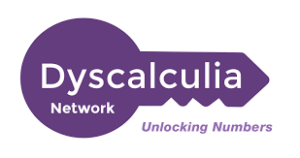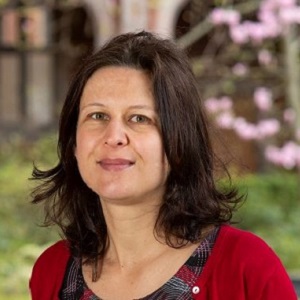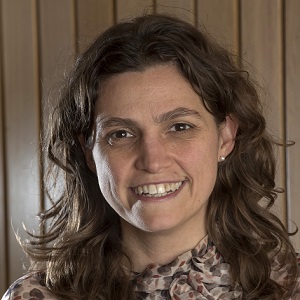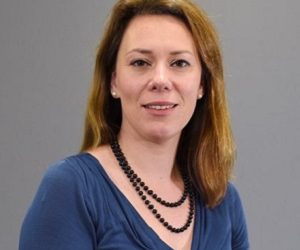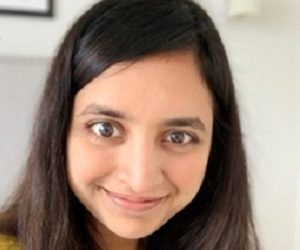I completed a BSc in Psychology and an MSc in Cognitive Neuropsychology at the Lorand Eotvos University in Hungary. I obtained my PhD in Experimental Developmental Psychology at the University of Plymouth in 2010. My PhD project concerned the development of reasoning heuristics in autism and in typical development. During my PhD, I also worked as a Teaching and Research Associate at the University of Plymouth. Following my PhD, I obtained a post-doctoral position at the University of Geneva, and worked on a project concerning the development of conditional reasoning skills. Subsequently, I was awarded an ESRC post-doctoral fellowship and moved to the University of Cambridge. My project investigated the reasoning skills of children with developmental dyscalculia and children with exceptional mathematics skills. Before taking up my current post as a Senior Lecturer in Mathematical Cognition at Loughborough University in 2020, I worked as a Lecturer in Psychology at Queen’s University Belfast.
How did you become interested in learning difficulties?
My first encounter with learning difficulties was a module on autism as an undergraduate psychology student. I was fascinated by the cognitive differences that can result from atypical brain development, and also by the theories about how these differences unfold developmentally. After finishing my MSc degree, my first job (which also brought me to the UK) was a role as a support worker with autistic children and adults. Getting to know autistic people more closely made me question some of the then prevailing theories of autistic cognition. I already wanted to apply for a PhD position, as I was interested in doing research, but working with autistic people inspired me to do research on autistic cognition as well. My project investigated the typical and atypical development of reasoning skills. When I finished my PhD, and looked for post-doctoral opportunities, I came across a large research project at the University of Cambridge which was focussing on mathematics learning difficulties and developmental dyscalculia. It seemed like a great opportunity to extend my research to another type of developmental disability, and to work as part of a world-leading research group with a focus on mathematical cognition. At that time, I already started to work at the intersection of reasoning and decision making, and mathematical cognition, and obtaining funding to work at the Centre for Neuroscience in Education at Cambridge was like a dream come true. The main hypothesis that I wanted to explore was that dyscalculic people also experience problems outside of mathematics (and in particular, they have problems with logical reasoning), and this was exactly what the results of our project showed. This is an important finding for the field of mathematical cognition, because it highlights how closely related mathematics skills are to more general cognitive skills (such as reasoning ability). This challenges the assumption that numerical skills can be considered purely domain-specific.
Can you give us an overview of your work?
Broadly speaking, my research concerns the development of mathematics skills and mathematics anxiety, and the links between reasoning skills and mathematics performance. I am also interested in how affective and motivational states influence maths- and reasoning abilities, as well as people’s decisions, and how maths- and reasoning skills can be improved by training. I am also interested in the atypical development of these skills (in developmental dyscalculia and autism). A final area of interest is psychological measurement (for example, how we can measure mathematics anxiety in different age groups, and in non-educational settings, and how we can identify people with mathematics learning difficulties).
What are your most recent and exciting results?
In relation to specific learning difficulties, I completed a project a few years ago, which looked at the prevalence of dyscalculia and the typical problems associated with dyscalculia (which also extend beyond mathematics skills). One important issue that we uncovered was how notoriously underdiagnosed dyscalculia was (and still is). It is expected that dyscalculia is about as prevalent as dyslexia, yet a child with dyslexia is about 100 times more likely to be diagnosed and to receive educational support than a child with dyscalculia. Another important finding of this project was to show how often dyscalculia co-occurs with other developmental disorders. In the past, dyscalculia was often presented as an enigmatic condition which only affects mathematics skills in a person who has intact cognitive abilities in all other areas. In fact, we have found that about 80% of pupils with dyscalculia also struggle in other areas of learning or are diagnosed with other developmental disabilities. We have also uncovered evidence in relation to the difficulties that people with dyscalculia may experience outside of dealing with numerical information. For example, people with dyscalculia often have problems with time management and keeping track of time, picturing mechanical processes, learning movement sequences (such as dance moves), telling left from right and reading maps. It is important to see the broader picture of everyday struggles in people with specific learning difficulties, in order to be able to develop useful interventions for them. I am also in the process of developing an app to screen schoolchildren for dyscalculia. I am very excited about this project, as I think this could help with tackling the problem of underdiagnosis, and early diagnosis can also make it possible for children to get access to interventions at an early stage, when their problems could be more easily remediated.
What do you think are the main challenges in this research field?
I see the underdiagnosis of dyscalculia as a real challenge, as this makes it difficult to recruit research participants. Pupils without an official diagnosis also do not appear in government statistics, which makes it less likely that support mechanisms will be made available to them. And, of course, it is more difficult to get research funding in this field when there are very few people officially diagnosed with dyscalculia. Another issue is that dyscalculia can be considered as the extreme end of the continuum of mathematics abilities. For this reason, many people within the research community believe that dyscalculia can be best researched by looking at a large sample of typically developing individuals, instead of trying to identify people with dyscalculia. Due to the underdiagnosis of dyscalculia, it is difficult to recruit research participants for studies, and sample sizes may be small. At the same time, if we do not specifically run studies with people with persistent mathematics difficulties, I do not think we can fully understand their cognitive characteristics. The issue still remains where we should draw the line between a person who is not particularly good at mathematics, and somebody with dyscalculia. However, the answer is probably that we should look at the broader clinical profile and history of this person, rather than just rely on an assessment of their mathematics performance. Another issue that arises from underdiagnosis is that researchers often use their own methods to diagnose people with dyscalculia, which can make it difficult to compare results across different research studies. A final point is that given that school systems and school starting ages differ between countries, a 7-year-old with dyscalculia in Northern Ireland may exhibit different difficulties in their mathematics skills than a 7-year-old dyscalculic pupil in Hong Kong, Brazil or France. Maths curricula also differ between countries. So, to some extent, research findings will always be specific to countries and educational systems, and we have to keep this in mind when we try to integrate findings from different studies.
What are the most pressing research priorities?
I think a very important issue is to develop reliable diagnostic tools for dyscalculia, and to use these widely. We should also be able to offer effective intervention methods for pupils with dyscalculia. Dyscalculia is a developmental disorder which does not just go away when people finish school. So, we would need to find out more about dyscalculia in adults, and the consequences of dyscalculia in adulthood. Currently, there is very little research on dyscalculia in adults, although this would be important to be able to assess the lifelong impact of dyscalculia on people’s lives.
https://www.lboro.ac.uk/departments/mec/staff/kinga-morsanyi/ | @KMorsanyi
Centre for Mathematical Cognition | Centre for Early Mathematics Learning | Loughborough University PR

